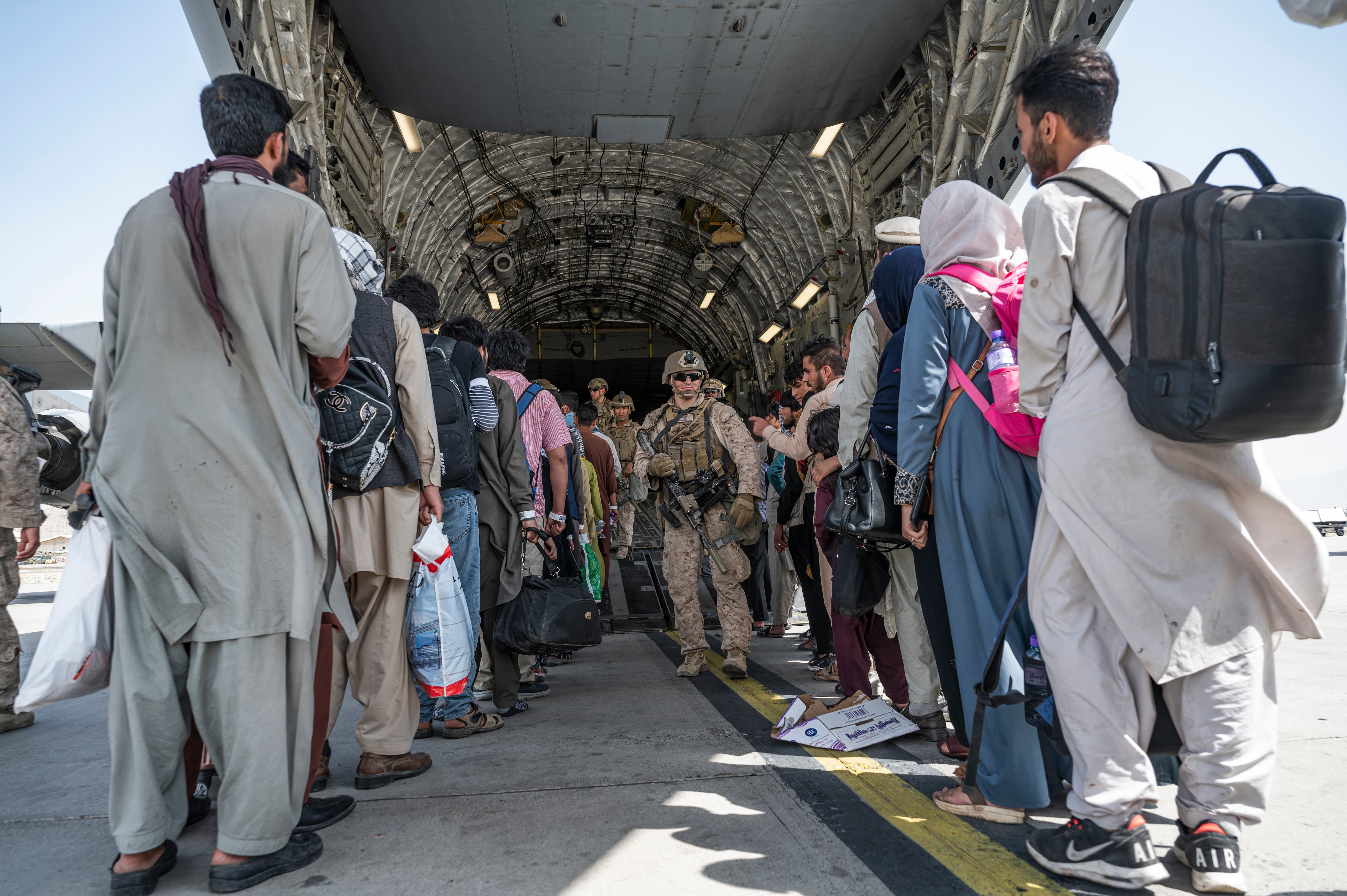President Joe Biden on Tuesday stood by plans to withdraw all U.S. troops from Afghanistan by the end of August, saying that keeping forces there longer to evacuate refugees could invite terrorist and Taliban attacks on American personnel.
“Every day we’re on the ground as another day we know that ISIS-K is seeking to target the airport to attack U.S. and allied forces, and innocent civilians,” he said in a nationwide speech.
“Thus far, the Taliban have been taking steps to work with us so we can get our people out. But it’s a tenuous situation. We’ve already had some gun fighting break out. We run a serious risk of it breaking down as time goes on.”
The president’s comments came despite increasing pressure from lawmakers and advocacy groups who worry that thousands of vulnerable individuals will still be trapped in the country when the Aug. 31 deadline arrives.
RELATED

Earlier in the day, the Associated Press reported that Taliban spokesman Zabihullah Mujahid said the United States must stick to its self-imposed deadline, saying “after that we won’t let Afghans be taken out” on evacuation flights.
He also said the Taliban would bar Afghans from accessing roads to the airport, while allowing foreigners to pass in order to prevent large crowds from massing. It was not immediately clear if they would stop Afghans who are escorted by foreigners or in the process of being evacuated by Western nations.
White House officials said that about 21,600 people were evacuated from Kabul in a 24-hour period between Monday morning and Tuesday, a significant increase from the slow pace of flights out last week. Since late July, U.S. efforts have relocated almost 76,000 people.
“We’re currently on a pace to finish by Aug. 31st. The sooner we can finish, the better,” he said.
But outside advocates say tens of thousands more — including some American citizens — still remain in the country.
On Monday, following a congressional briefing on Afghanistan, House Intelligence Committee Chairman Adam Schiff, D-Calif., said that it was “very unlikely” that everyone seeking to escape Taliban rule will be out of the country by the Aug. 31 deadline.
“It’s hard for me to imagine all of that can be accomplished between now and the end of the month,” he told reporters.
“I am encouraged to see the numbers of people evacuated increasing … Nonetheless, given the logistical difficulties of moving people to the airport, and the limited number of work arounds, it’s hard for me to see that being fully complete.”
About 30 Republican lawmakers held a rally outside the Capitol on Tuesday morning to demand the Biden administration extend the deadline, saying that the president would “have blood on his hands” if any Americans or Afghan allies were left behind.
When asked if they were worried such a move could endanger American military personnel, numerous members said the risk was worth the mission.
“American lives are at risk right now,” said Rep. Brad Wenstrup, R-Ohio and an Army reservist who deployed to Iraq in 2005. “President Biden set a date of Aug. 31. That was supposed to be his deadline, but now it’s [the Taliban’s] deadline. And they have totally turned the tables.”
But House Armed Services Committee Chairman Adam Smith, D-Wash., said after his latest briefing on the withdrawal timeline that he was confident Aug. 31 was a realistic and responsible deadline.
RELATED

“I’m very confident we’ll get as many as it is possible to get out,” he told reporters.
“There’s a contingency to go past the 31st. It would be malpractice if there wasn’t … but is there a [military] risk to keeping troops past the 31st? Absolutely there is.”
A senior administration official said on Tuesday that U.S agencies are conducting background and health checks on all individuals who have been evacuated from Afghanistan. Overseas military bases will take some of those individuals, while foreign partners in Europe and Asia have agreed to act as processing stations while that work is done.
Leo covers Congress, Veterans Affairs and the White House for Military Times. He has covered Washington, D.C. since 2004, focusing on military personnel and veterans policies. His work has earned numerous honors, including a 2009 Polk award, a 2010 National Headliner Award, the IAVA Leadership in Journalism award and the VFW News Media award.



